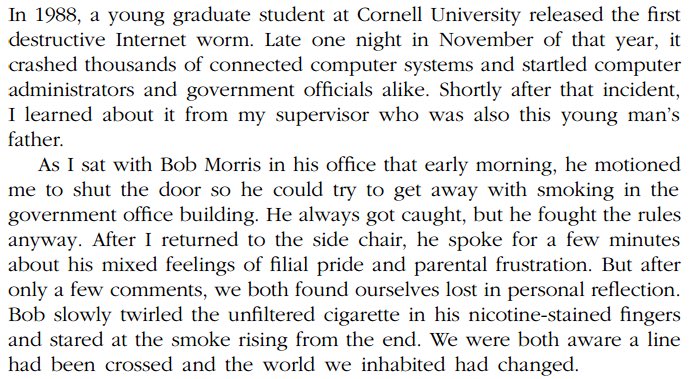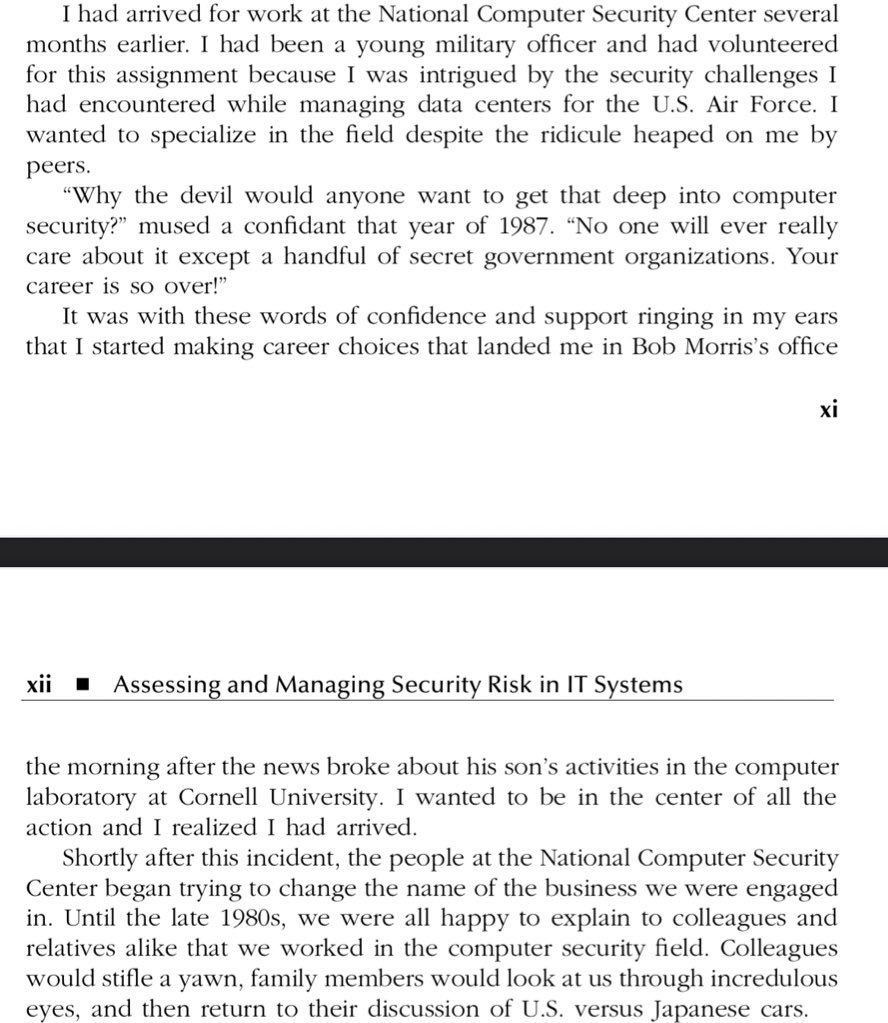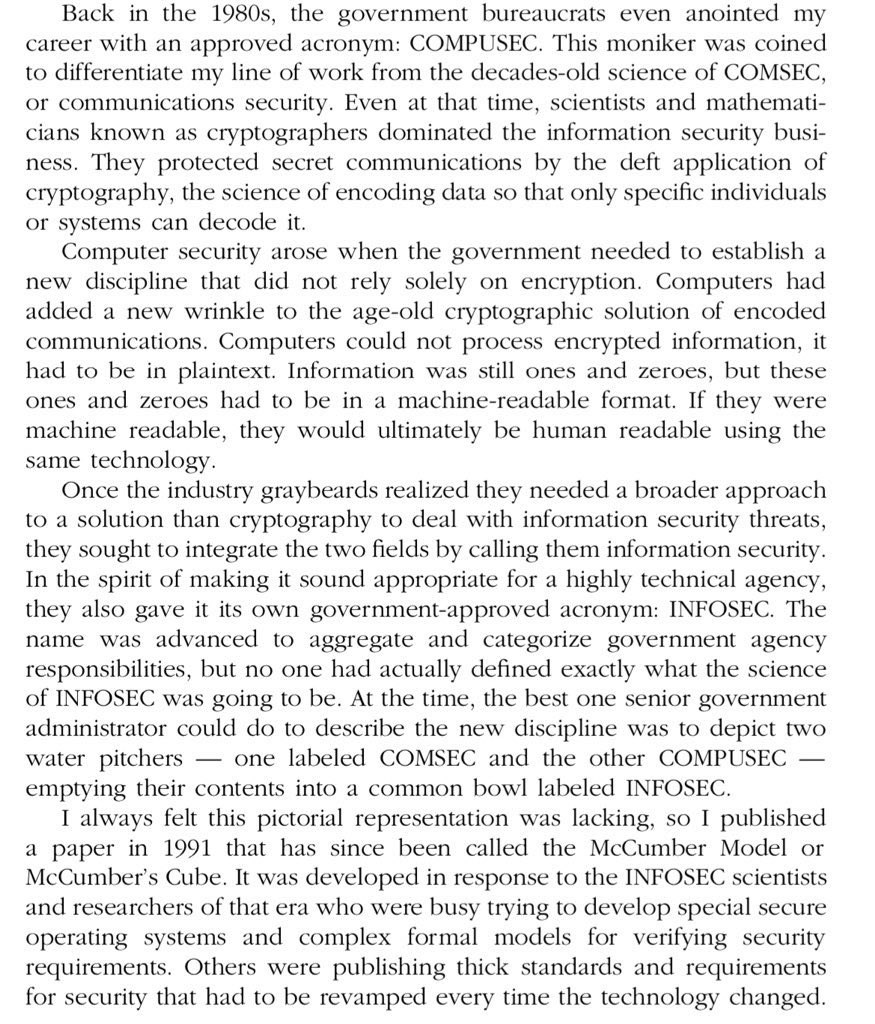
In 1988, two men sit in a room. One of them is cryptographer Bob Morris, the father of Robert Morris, who had just released the first Internet worm.
"A line had been crossed and the world we inhabited had changed."
(@johnmccumber, Assessing&Managing Security Risk in IT Systems)
"A line had been crossed and the world we inhabited had changed."
(@johnmccumber, Assessing&Managing Security Risk in IT Systems)

Book excerpt: "In 1988, a young graduate student at Cornell University released the first destructive Internet worm. Late one night in November of that year, it crashed thousands of connected computer systems and startled computer administrators and government officials alike."🧵
"Shortly after that incident, I learned about it from my supervisor, who was also this young man’s father. As I sat with Bob Morris in his office that early morning, he motioned me to shut the door so he could try to get away with smoking in the government office building."
"He always got caught, but he fought the rules anyway. After I returned to the side chair, he spoke for a few minutes about his mixed feelings of filial pride and parental frustration. But after only a few comments, we both found ourselves lost in personal reflection."
"Bob Morris slowly twirled the unfiltered cigarette in his nicotine-stained fingers and stared at the smoke rising from the end. We were both aware a line had been crossed and the world we inhabited had changed."
Author: @johnmccumber
Book: google.com/books/edition/…
Author: @johnmccumber
Book: google.com/books/edition/…
Further parts of the foreword are illuminating on how obscure InfoSec was in early days, even before the term existed. 



• • •
Missing some Tweet in this thread? You can try to
force a refresh






